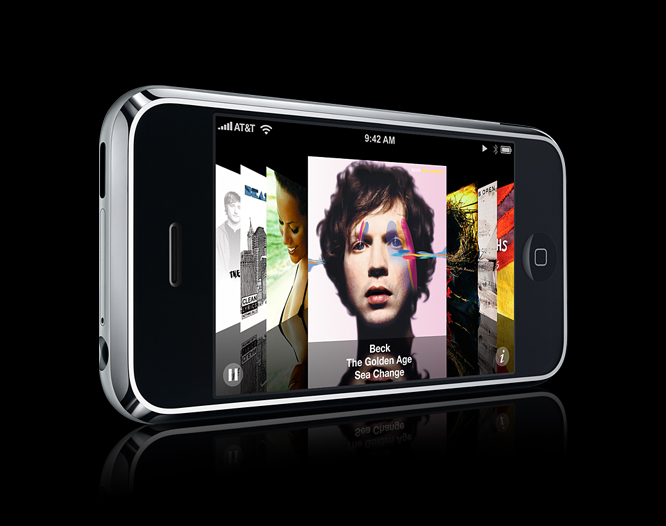How to buy an iPhone in the UK
You want an iPhone in the UK? Here's how

Unbelievably, the Apple iPhone launch is now just a few days way. At long last, after all the hype and speculation, you'll be able to get your sweaty, trembling hands on the most sought-after gadget of the year.
At least, you'll be able to get your paws on an iPhone if you live in the States. For most of us in the UK, 29 June will simply crank up our already lustful feelings for the iPhone. It'll be towards the end of 2007 before the official European release.
But what if you can't wait? What should you do if you live in the UK and want to get yourself an iPhone right now? Here are a few tips for would-be iPhone owners. The simplest bit of advice? Get over there - FAST!
Go to the States and queue
If you want to be first you'll have to be quick. The blogosphere is alive with iPhone fans speculating about how long they'll have to queue on 29 June. It's likely that many will start queuing on 28 June (or before) just so they can be first to scratch that iPhone itch.
There'll be around 2,000 stores selling the iPhone in the US ( AT&T and Apple ). Official guidance from AT&T states that there should be no waiting lists and no pre-selling. But a report by researchers Channel Checkers found that 64 per cent of stores are reported as having waiting lists. The average is around 25 - which just means longer queues.
Don't buy from Apple
If you've got a friend in the US on the launch date, or if you're likely to be there yourself and fancy picking up one of the little blighters while you're there - don't go to an Apple store. So says Steve Jobs, apparently. Blog publisher Arianna Huffington buttonholed him at a conference and asked him the best way to get hold of an iPhone.
The surprising answer was, she writes, not from Apple: "Don't go to an Apple store," Jobs told me. "It will be a madhouse there. People will be lined up around the block, sleeping on the sidewalk to get one. Go to an AT&T/Cingular store. Most people don't know that they will be selling them too." So now you know.
Get daily insight, inspiration and deals in your inbox
Sign up for breaking news, reviews, opinion, top tech deals, and more.
Buying on eBay
You just know that eBay is going to be awash with iPhones minutes after they go on sale. You also know the sellers will be asking silly money. Don't fall for it - the iPhone isn't a limited edition (there's rumoured to be 3 million iPhones ready for the launch).
So the longer you wait, the more there'll be and the cheaper the price. And don't bother trying to pre-order one from eBay before the release date - the site has removed every such offer.
Even after 29 June, be wary, and don't consider parting with your dosh unless the vendor's got some decent history on the site. And preferably a picture of the actual model they're offering to send you.
Other places to buy
Several UK sites are offering pre-orders on iPhones. But none of them know exactly what it's going to cost yet, with contract details factored in. As with eBay, beware of Amazon' s affiliate sellers - whatever they say, they don't have them yet.
PROBLEMS TO LOOK OUT FOR:
Two-year contracts
Apple has stated that the iPhone won't be available SIM-free from outlets - although rumours persist that SIM-free iPhones will be sold. Buyers will have to take out a two year contract with US network AT&T (formerly Cingular). That's bound to bump up the all-in price beyond the prices that are currently being touted: $499 (£250) for the 4GB model and $599 (£300) for the 8GB model.
Then again, Apple is no stranger to withholding information. And no time limit appears to have been set on this exclusive contract deal. So there could still be a chance of SIM-free iPhones available soon after launch.
Tech.co.uk was the former name of TechRadar.com. Its staff were at the forefront of the digital publishing revolution, and spearheaded the move to bring consumer technology journalism to its natural home – online. Many of the current TechRadar staff started life a Tech.co.uk staff writer, covering everything from the emerging smartphone market to the evolving market of personal computers. Think of it as the building blocks of the TechRadar you love today.